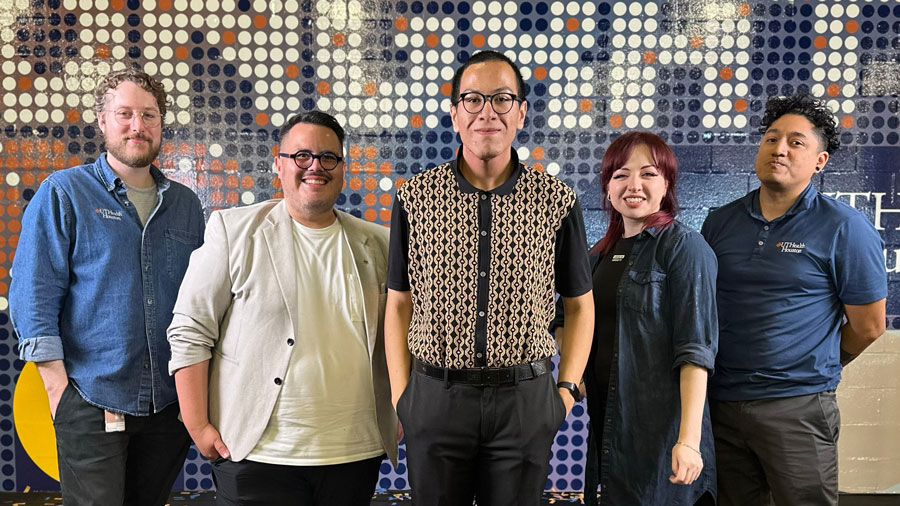New autism support, internship program creates meaningful impact

To support young adults with autism transitioning into adulthood and the workforce, particularly those within Latino communities, UTHealth Houston recently implemented the bilingual Launching! to Adulthood program.
The first 12 weeks of the program involve both in-person and virtual therapy designed to strengthen self-management skills in areas such as mental health, executive functioning, and social cognition. It includes individualized coaching sessions, biweekly group sessions, and job-readiness webinars for the 30 interns currently enrolled.
The second 12 weeks, which can occur concurrently with the therapy portion or immediately after, involve an internship opportunity at UTHealth Houston where participants work approximately 10 hours per week in departments aligned with their career interests.
“I am extremely grateful for how the program has taken off and is going so far, as we are working with 15 departments and over 30 supervisors to demonstrate strong institutional buy-in and access to a wide range of internship placements,” said Antonio Pagán, PhD, program director, postdoctoral fellow, and licensed psychologist at McGovern Medical School. “We serve as a crucial bridge between employers and interns, providing real-time assistance to address workplace challenges and communication breakdowns.”
More about the program
Guided by a bilingual community advisory board of autistic self-advocates, and parents, the initiative is funded by NEXT for Autism, Autism Speaks, and NIH grants.
It includes group therapy for both parents and young adults, individual therapy sessions, family therapy, and a weekend webinar series. Parent sessions are delivered in Spanish, while young adults receive services in their preferred language.
Interns also receive support from Texas Workforce Commission vocational rehabilitation counselors where parents and employers participate in bilingual training webinars to enhance support and understanding of autism in the workplace.
Research findings from the program indicate improved career readiness, stronger self-efficacy, and high satisfaction among participants, families, and supervisors.
Participant experiences
In the Office of Public Affairs, Branding and Creative Services intern Yoimar Aviles had this to say about the program and his internship.
“The LIA program has allowed me to explore skills that I had never really considered before. It has also given me the chance to work with a great group of people, as everyone on the team is friendly and always willing to answer questions. At first, being in an office environment was a bit intimidating to me, since it was a completely new experience, but now I’m more comfortable and I look forward to being there every day.”
Aviles’ internship supervisor, Jonathan Lopez, manager of Creative Services, also shared his thoughts on the experience.
“Participating as a supervisor in this program has been an incredibly rewarding experience,” said Lopez, manager of Creative Services. “Our interns have shadowed creative professionals from various backgrounds and contributed meaningfully to some of our recent projects. We were especially grateful for the support they provided during the 2025 commencement ceremonies, and it has been a joy to have them on staff, even for a short time.”
Looking ahead
The current cohort ends in August and the next one is scheduled for spring 2026.
Recent pilot studies revealed strong employer interest in hosting autistic interns, though most expressed the need for training in autism awareness, communication strategies, and workplace accommodations. These findings are shaping ongoing improvements to ensure long-term program success and broader community adoption.
For more information about the program, reach out to Antonio Pagán.